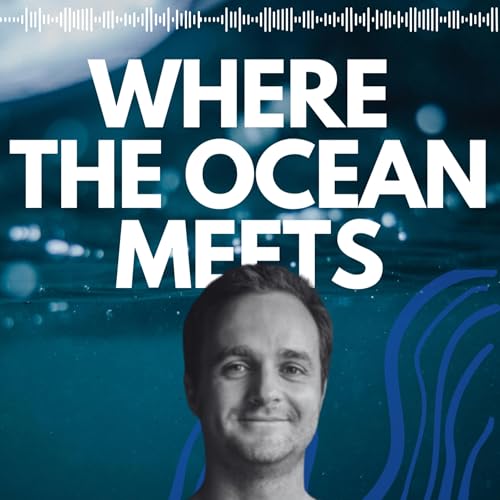
How did you go from punk to environmental educator? | Where The Ocean Meets: Benedict Wermter (AKA @bule_sampah)
カートのアイテムが多すぎます
カートに追加できませんでした。
ウィッシュリストに追加できませんでした。
ほしい物リストの削除に失敗しました。
ポッドキャストのフォローに失敗しました
ポッドキャストのフォロー解除に失敗しました
-
ナレーター:
-
著者:
このコンテンツについて
Where The Ocean Meets: Benedict Wermter (Bule Sampah)
Episode Summary
From German punk dropout to Indonesia's most influential plastic pollution educator, Benedict Wermter has lived multiple lives before turning 40. In this conversation, Benedict shares his journey from anti-establishment teenager to investigative journalist to social media educator reaching 5+ million Indonesians monthly. He reveals shocking realities of waste management in Indonesia, including how plastic waste is burned to steam tofu, and explains why he believes behavioral change—not recycling—holds the key to solving our plastic crisis.
Guest Bio
Benedict Wermter, known online as "Bule Sampah" (White Trash), is a German investigative journalist turned environmental educator based in Indonesia. He was the first trainee at Correktiv, Germany's premier investigative journalism outlet, and produced documentaries including "The Recycling Myth" that aired on BBC and German television. Today, he reaches over 5 million Indonesians monthly through social media, educating communities about plastic pollution and waste prevention. He also founded a foundation and developed the SampApp for waste education.
Key Topics Discussed
The Punk Years & Early Rebellion
- Dropping out of school at 16 in industrial West Germany
- Joining punk communities and questioning capitalist structures
- The transition from rebellion to purposeful activism
- How anti-establishment attitudes evolved into investigative journalism
Investigative Journalism Career
- Training at Correktiv with founder David
- Learning that most scandals happen "in front of everybody's eyes"
- Power dynamics and conflicts of interest in media
- The complexity of truth in environmental reporting
Indonesia's Waste Crisis Reality
- Structural waste burning every afternoon across villages
- Children living on dump sites
- Plastic waste burned to steam tofu in factories
- Motor oil dumped directly onto trees
- The gap between tourist perception and reality
Building Bule Sampah
- Why he chose to educate rather than investigate
- Reaching 5+ million Indonesians monthly on Instagram
- Consumer behavior change vs. recycling solutions
- Measuring impact through surveys and the SampApp
Solutions & Hope
- Why "zero waste" is misleading - better to have 10 people reduce waste 10% than 1 person reduce 80%
- The importance of connecting households to proper infrastructure
- Extended Producer Responsibility and regulatory frameworks
- Economic incentives for waste collection and management
Memorable Quotes
"The majority of scandals are not the secret things that need to be uncovered... the power abuse and the things that are actually scoops are happening in front of everybody's eyes."
"There is no way you can hate plastics. Plastics are the tool of our time. We all use them every day. It's clearly the age of plastics."
"Zero waste is also misleading. Like nobody can be zero waste. It's a bullshit term. We want 10 people to be 10% less wasteful."
"Waste management starts with consumption, obviously, and not with managing waste."
Episode Highlights & Timestamps
[00:00] Introduction and the Nazi chase vs. Bulgarian scrapyard comparison
[01:22] From motivated student to punk dropout
[05:06] What triggers Benedict about "the establishment"
[08:19] Learning about power and injustice in journalism
[11:28] Why crude characters and environmental stories
[19:34] The paradox of hating plastic while using smartphones
[23:51] Does Indonesia really care about plastic pollution?
[25:57] The reality beyond Bali's tourist image
[31:34] The tofu factories burning plastic story
[36:21] How your baseline adjusts to extreme conditions
[37:25] Building a 5+ million person reach
[42:04] From outside critic to industry participant
[44:10] Success stories and concrete impact


